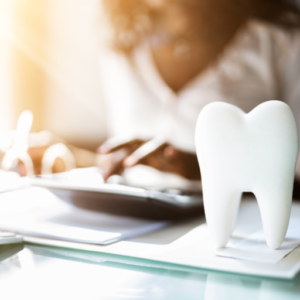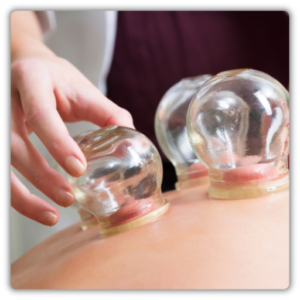 As more people seek comprehensive health solutions, holistic dentistry has emerged as a popular alternative to traditional dental practices. This approach emphasizes the interconnectedness of oral health with overall well-being, focusing on natural remedies and prevention rather than merely treating symptoms. In this guide, we will explore what holistic dentistry entails, the services offered by these dentists, and how you can make informed choices for your dental health.
As more people seek comprehensive health solutions, holistic dentistry has emerged as a popular alternative to traditional dental practices. This approach emphasizes the interconnectedness of oral health with overall well-being, focusing on natural remedies and prevention rather than merely treating symptoms. In this guide, we will explore what holistic dentistry entails, the services offered by these dentists, and how you can make informed choices for your dental health.
KEY POINTS
- Holistic dentistry focuses on the connection between oral health and overall well-being, using natural remedies and biocompatible materials to support whole-body health.
- Holistic dentists prioritize prevention and personalized care by addressing root causes of dental issues, considering factors like nutrition, lifestyle, and emotional well-being.
- Natural alternatives, such as fluoride-free toothpaste and essential oils, are commonly used in holistic dentistry to promote oral health without harmful chemicals.
- Holistic dental care emphasizes patient education, empowering individuals to make informed decisions and adopt healthier habits for long-term wellness.

Pop in your email below, and we’ll zip it straight to your inbox so you never lose it!
What is Holistic Dentistry?
How does it differ from traditional dentistry?
 Holistic dentistry distinguishes itself from traditional dentistry through its comprehensive approach to oral care. While conventional methods often focus solely on treating dental issues like cavities or gum disease, holistic dentists consider the whole body in their practices. They recognize that dental health can significantly impact overall wellness and aim to identify and treat the root causes of dental problems. For instance, they might explore how nutrition affects your teeth and gums, whereas a traditional dentist may only focus on the symptoms of decay. Some holistic dentists may incorporate traditional methods as well, as noted by Kirsten Nunez on Healthline (Healthline). This fundamental difference in philosophy leads to diverse treatment methods that prioritize patient well-being.
Holistic dentistry distinguishes itself from traditional dentistry through its comprehensive approach to oral care. While conventional methods often focus solely on treating dental issues like cavities or gum disease, holistic dentists consider the whole body in their practices. They recognize that dental health can significantly impact overall wellness and aim to identify and treat the root causes of dental problems. For instance, they might explore how nutrition affects your teeth and gums, whereas a traditional dentist may only focus on the symptoms of decay. Some holistic dentists may incorporate traditional methods as well, as noted by Kirsten Nunez on Healthline (Healthline). This fundamental difference in philosophy leads to diverse treatment methods that prioritize patient well-being.
What are the core principles of holistic dental care?
The core principles of it care revolve around treating the patient as a whole, not just focusing on their teeth and gums. These principles include the use of biocompatible materials for fillings and crowns, emphasizing the importance of nutrition in maintaining oral health, and integrating preventive care into the treatment plan. They are committed to using techniques that minimize discomfort and anxiety, a common concern among patients. They often employ gentle methods, such as laser dentistry, to treat conditions without the need for invasive procedures.
Another principle is the commitment to educating patients about their oral health. These dentists encourage patients to take an active role in their dental care, providing them with resources and knowledge about maintaining a healthy mouth and body. This education extends to discussions about the potential risks of traditional dental materials and practices. By fostering an open dialogue, they empower patients to make informed decisions about their treatment options, ultimately leading to a healthier, more balanced lifestyle.
Why is a holistic approach important for overall health?
A holistic approach to dental care is essential for overall health because it recognizes the interconnectedness of the body systems. Oral health issues, such as gum disease, are linked to systemic conditions like heart disease and diabetes. By emphasizing prevention and the use of natural remedies, holistic dentistry aims to reduce the risk of these health complications. For instance, addressing bacterial infections in the mouth can prevent them from affecting other parts of the body, thereby promoting overall well-being.
Furthermore, holistic dentists emphasize the importance of mental and emotional health in relation to oral health. They understand that stress and anxiety can lead to dental problems, such as teeth grinding or poor hygiene practices. By creating a warm and welcoming environment, holistic dentists help alleviate patient fears, ensuring they receive the care they need. This holistic perspective not only addresses dental issues but also fosters a comprehensive approach to health that benefits the individual as a whole.
What Services Can You Expect from a Holistic Dentist?
What preventive care options do holistic dentists offer?
 Holistic dentists prioritize preventive care as a cornerstone of their practice. They offer a range of services designed to maintain optimal oral health and prevent conditions like tooth decay and gum disease. One common preventive measure is the use of natural toothpaste and mouthwash, free of harmful chemicals and fluoride, which can adversely affect some patients. Additionally, holistic dentists often provide nutritional counseling, helping patients understand how their diet can influence dental health.
Holistic dentists prioritize preventive care as a cornerstone of their practice. They offer a range of services designed to maintain optimal oral health and prevent conditions like tooth decay and gum disease. One common preventive measure is the use of natural toothpaste and mouthwash, free of harmful chemicals and fluoride, which can adversely affect some patients. Additionally, holistic dentists often provide nutritional counseling, helping patients understand how their diet can influence dental health.
Regular cleanings and examinations are also essential components of preventive care in holistic dentistry. These visits allow the dentist to monitor the condition of teeth and gums, identifying potential issues before they become significant problems. Holistic dentists may also recommend natural remedies to support oral health, such as using essential oils for their antibacterial properties or incorporating herbal supplements to enhance healing. By focusing on prevention, holistic dentists help patients achieve lasting dental health while minimizing the need for invasive treatments.
How do holistic dentists approach restorative procedures?
When it comes to restorative procedures, holistic dentists take a thoughtful approach that emphasizes the use of biocompatible materials. Unlike traditional dentists who may use substances containing mercury for fillings, holistic dentists prefer materials that do not pose risks to overall health. They may utilize composite resins or glass ionomer materials that blend seamlessly with natural teeth, enhancing aesthetics while ensuring safety. This commitment to using non-toxic materials reflects their focus on the patient’s well-being.
Moreover, holistic dentists strive to minimize discomfort during restorative procedures by employing advanced techniques such as laser dentistry or gentle sedation methods. This approach not only improves the patient experience but also promotes faster healing times. Holistic dentists also encourage patients to engage in their treatment plans, discussing options and tailoring procedures to fit their individual needs and preferences. By fostering a collaborative environment, holistic dentists ensure that restorative care aligns with the patient’s overall health goals.
Are there natural alternatives to common dental treatments?
 Holistic dentistry offers a variety of natural alternatives to common dental treatments, focusing on the use of gentle methods and biocompatible materials. For instance, instead of fluoride treatments, holistic dentists might recommend remineralizing toothpaste that contains natural minerals to strengthen enamel without the risks associated with fluoride. They may also advocate for the use of essential oils to manage oral bacteria and promote gum health, providing patients with effective yet natural remedies for maintaining their dental wellness.
Holistic dentistry offers a variety of natural alternatives to common dental treatments, focusing on the use of gentle methods and biocompatible materials. For instance, instead of fluoride treatments, holistic dentists might recommend remineralizing toothpaste that contains natural minerals to strengthen enamel without the risks associated with fluoride. They may also advocate for the use of essential oils to manage oral bacteria and promote gum health, providing patients with effective yet natural remedies for maintaining their dental wellness.
Additionally, for conditions like tooth sensitivity, holistic dentists might suggest using natural desensitizing agents or dietary adjustments to alleviate discomfort. They often encourage patients to embrace preventive measures, such as regular cleanings and maintaining a healthy diet rich in vitamins and minerals to support oral health. This focus on natural alternatives allows patients to receive effective care while minimizing their exposure to harmful substances often found in conventional treatments, ultimately leading to better overall health.
What Should You Look for in a Holistic Dentist?
What qualifications should a holistic dentist have?

According to WebMD, a holistic dentist is a medical professional who uses alternative dental practices alongside conventional methods. When searching for a holistic dentist, it’s essential to consider their qualifications and training.
A qualified holistic dentist should possess a valid dental license and have completed additional training in holistic practices. Many holistic dentists are general dentists who have pursued further education in alternative medicine, allowing them to integrate holistic methods into their practice. Look for dentists who are members of reputable dental associations that endorse holistic practices, as this indicates a commitment to staying informed about the latest advancements.
Moreover, it’s beneficial to seek out dentists who have experience in using biocompatible materials and natural remedies. A holistic dentist should also demonstrate a willingness to engage in patient education, providing resources and guidance on maintaining oral health. Ultimately, choosing a dentist with the right qualifications will ensure you receive comprehensive care that aligns with your holistic health goals, making your dental experience more fulfilling.
How can you assess a dentist's commitment to holistic practices?
To assess a dentist’s commitment to holistic practices, consider scheduling an initial consultation. During this visit, pay attention to how the dentist approaches your concerns and their willingness to discuss holistic methods. A holistic dentist should prioritize open communication and actively listen to your needs, tailoring their recommendations accordingly. Inquire about the materials they use for procedures and their stance on conventional treatments like fluoride and mercury fillings. A dentist who is truly committed to holistic practices will provide clear explanations and alternatives that align with your health philosophy.
Additionally, researching patient reviews and testimonials can provide insight into the dentist’s approach and the overall patient experience. Look for comments that highlight the dentist’s focus on education, preventive care, and the use of natural remedies. A practice that emphasizes patient involvement and offers a warm, welcoming environment is likely to reflect a genuine commitment to holistic principles. Ultimately, finding a dentist who resonates with your values will enhance your dental care journey and support your holistic health objectives.
What questions should you ask during your initial consultation?
During your initial consultation with a holistic dentist, it’s crucial to ask questions that will help you understand their approach to care. Inquire about their philosophy on dental health and how it integrates with overall wellness. Ask them to explain their preferred materials for fillings and restorations, as well as their stance on traditional treatments like fluoride and mercury. This will give you insight into their commitment to using safe, biocompatible options for their patients.
Additionally, consider asking about their preventive care strategies, including nutritional counseling and natural remedies they may recommend. Find out how they address common dental concerns such as tooth decay and gum disease, and what techniques they use to ensure patient comfort during procedures. A holistic dentist should be open to discussing these aspects, allowing you to make an informed decision about your dental care. By asking these questions, you can gauge whether the dentist aligns with your health goals and values.
What Can You Expect During Your First Visit?
How is the initial examination different in holistic dentistry?
 The initial examination at a holistic dentist’s office often differs significantly from that of a traditional dentist. Rather than solely focusing on the teeth and gums, holistic dentists conduct a comprehensive assessment that considers the patient’s overall health. They may ask about your medical history, lifestyle, and any symptoms you may be experiencing. This holistic approach enables them to identify potential underlying issues that could affect your oral health and overall well-being.
The initial examination at a holistic dentist’s office often differs significantly from that of a traditional dentist. Rather than solely focusing on the teeth and gums, holistic dentists conduct a comprehensive assessment that considers the patient’s overall health. They may ask about your medical history, lifestyle, and any symptoms you may be experiencing. This holistic approach enables them to identify potential underlying issues that could affect your oral health and overall well-being.
During the examination, holistic dentists often utilize gentle techniques and may incorporate natural remedies to promote comfort. They may also employ diagnostic tools that minimize radiation exposure, reflecting their commitment to patient safety. This thorough evaluation allows the dentist to create a tailored treatment plan that addresses your unique needs, ensuring that your care aligns with your holistic health goals. Overall, the initial examination sets the stage for a collaborative and personalized dental experience.
What types of diagnostic tools are used by holistic dentists?
Holistic dentists utilize a variety of diagnostic tools that align with their commitment to patient safety and overall health. One common tool is digital X-rays, which emit significantly less radiation compared to traditional X-rays, ensuring a safer experience for patients. Additionally, many holistic dentists employ advanced imaging techniques that provide detailed insights without compromising health. These methods enable dentists to diagnose issues like tooth decay or bone loss while minimizing exposure to harmful substances.
In addition to imaging technologies, holistic dentists may use non-invasive tools to assess gum health and detect bacteria in the mouth. They often prioritize methods that do not involve chemical treatments, focusing instead on natural solutions that promote healing. By integrating these holistic diagnostic tools, dentists can develop a comprehensive understanding of each patient’s oral condition and create effective treatment plans that support their overall well-being.
How will a holistic dentist create a personalized treatment plan?
When creating a personalized treatment plan, a holistic dentist considers various factors, including your unique dental history, overall health, and individual preferences. This process typically begins during the initial consultation, where the dentist engages in a thorough discussion with you about your goals and concerns. They may also conduct a comprehensive examination to gain a deeper understanding of your oral health status. By considering your lifestyle, nutrition, and emotional well-being, holistic dentists can develop a tailored approach that addresses the root causes of dental issues.
A holistic dentist’s treatment plan may encompass preventive measures, restorative procedures, and natural remedies that align with your health values. They will likely emphasize the importance of regular check-ups and education, empowering you to take an active role in your dental care. This collaborative approach fosters a sense of partnership between you and your dentist, ensuring that your treatment plan not only addresses immediate concerns but also promotes long-term oral health and overall well-being.
What Are the Benefits of Choosing a Holistic Dentist?
How does holistic dentistry promote overall well-being?
 Choosing holistic dentistry can significantly enhance overall well-being by addressing the interconnectedness of oral health and systemic health. Holistic dentists understand that conditions like gum disease can influence other health issues, such as cardiovascular diseases and diabetes. By focusing on prevention and natural treatments, holistic dentistry aims to reduce the risk of these complications, promoting a healthier body as a whole. This proactive approach encourages patients to adopt healthier lifestyles, including improved nutrition and regular oral care practices.
Choosing holistic dentistry can significantly enhance overall well-being by addressing the interconnectedness of oral health and systemic health. Holistic dentists understand that conditions like gum disease can influence other health issues, such as cardiovascular diseases and diabetes. By focusing on prevention and natural treatments, holistic dentistry aims to reduce the risk of these complications, promoting a healthier body as a whole. This proactive approach encourages patients to adopt healthier lifestyles, including improved nutrition and regular oral care practices.
Moreover, holistic dentists often emphasize patient education, equipping individuals with the knowledge to make informed decisions about their health. They may provide resources and support for adopting natural remedies, which can lead to healthier habits. By creating a supportive environment that prioritizes the patient’s well-being, holistic dentists foster a sense of empowerment, encouraging patients to take charge of their dental care and overall health. This holistic perspective contributes to a more fulfilling and balanced lifestyle.
What role does patient education play in holistic dental care?
Patient education is a cornerstone, as it empowers individuals to take an active role in their oral health. Holistic dentists prioritize educating patients about the relationship between oral health and overall wellness, helping them understand how lifestyle choices, nutrition, and emotional well-being can affect their dental condition. This proactive approach encourages individuals to adopt healthier habits, such as regular brushing, flossing, and dietary adjustments that support oral health.
Additionally, holistic dentists provide information about natural remedies and preventive measures tailored to each patient’s needs. They may offer guidance on choosing non-toxic dental products and suggest dietary changes to promote strong teeth and gums. By fostering open communication and encouraging questions, holistic dentists create a collaborative environment that enhances patient understanding and engagement. This focus on education not only improves dental health outcomes but also contributes to the overall well-being of patients.
Can this type of care reduce anxiety and improve comfort during treatment?
This type of care is particularly effective in reducing anxiety and improving comfort during treatment. Holistic dentists often create a warm, welcoming environment that makes patients feel at ease. They understand that dental anxiety is common, and they employ various techniques to ensure a positive experience. This may include gentle communication, relaxation techniques, and a focus on providing a pain-free experience through minimally invasive methods.
Moreover, holistic dentists often prioritize patient comfort by using natural remedies to alleviate discomfort and anxiety. They may offer calming essential oils or suggest breathing exercises to help patients relax during procedures. By addressing both the physical and emotional aspects of dental care, holistic dentists strive to create a more comfortable experience for their patients. This comprehensive approach not only enhances treatment satisfaction but also fosters a long-term positive relationship with dental care.
How to Prepare for Your Holistic Dental Appointment?
What information should you bring to your appointment?
Preparing for your appointment involves gathering essential information to ensure a comprehensive evaluation. Bring a list of any medications you are currently taking, including supplements or herbal remedies, as these can significantly impact your oral health. Additionally, provide your dental and medical history, including any previous dental treatments or conditions that may affect your care. This information helps the holistic dentist understand your health status and tailor their approach accordingly.
It is also beneficial to bring any questions or concerns you may have about your oral health. This proactive approach allows you to engage in meaningful discussions with your dentist, ensuring that your needs and preferences are addressed. Lastly, consider bringing a journal of your dietary habits, as nutrition plays a crucial role. By preparing this information, you can facilitate a thorough, personalized consultation supporting your holistic health goals.
What questions should you have ready to discuss with your dentist?
Before your appointment, consider preparing a list of questions to discuss with your dentist. Inquire about their approach to dental health and how it aligns with holistic principles. Ask about the materials they use for treatments, particularly their stance on conventional options like mercury fillings and fluoride. Understanding their philosophy will help you assess whether their practices align with your values.
Additionally, consider asking about preventive measures and natural remedies they recommend to maintain oral health. Inquire about their approach to common dental issues, such as sensitivity or decay, and what techniques they use to ensure patient comfort during procedures. By having these questions ready, you can engage in meaningful discussions with your holistic dentist, empowering yourself to take an active role in your dental care journey.
What Are Common Misconceptions About Holistic Dentistry?
Is holistic dentistry less effective than traditional methods?
A common misconception about holistic dentistry is that it is less effective than traditional methods. However, research indicates that holistic approaches can be just as effective, if not more so, in promoting long-term oral health. Holistic dentists prioritize prevention and the use of natural remedies, often addressing the underlying causes of dental issues rather than just treating symptoms. This proactive approach can lead to improved outcomes and a greater emphasis on overall well-being.
Moreover, holistic dentistry integrates modern techniques and materials that are safe and effective. Many holistic dentists combine traditional practices with alternative methods, ensuring that patients receive comprehensive care. By focusing on the whole person, holistic dentists can provide treatments that enhance both oral and systemic health, demonstrating that their methods are indeed effective in maintaining and improving dental health.
Are holistic dental practices safe for patients?
 Many patients wonder about the safety of holistic dental practices, particularly regarding the materials used and treatment methods employed. Holistic dentists prioritize the use of biocompatible materials that do not contain harmful substances, such as mercury. This focus on safety ensures that patients receive treatments that align with their overall health and wellness goals. Holistic dental practices often utilize natural remedies and techniques to promote the body’s self-healing capabilities, which can include methods like ozone therapy, laser treatments, and herbal supplements.
Many patients wonder about the safety of holistic dental practices, particularly regarding the materials used and treatment methods employed. Holistic dentists prioritize the use of biocompatible materials that do not contain harmful substances, such as mercury. This focus on safety ensures that patients receive treatments that align with their overall health and wellness goals. Holistic dental practices often utilize natural remedies and techniques to promote the body’s self-healing capabilities, which can include methods like ozone therapy, laser treatments, and herbal supplements.
In addition to biocompatible materials, holistic dentists emphasize the importance of patient education and informed consent. They take the time to explain the rationale behind each treatment option, allowing patients to make choices that resonate with their values and health philosophies. This patient-centered approach fosters trust and encourages open communication, ensuring that patients feel empowered in their dental care journey.
Moreover, holistic dentists often consider the connection between oral health and systemic health. They may assess the impact of dental issues on overall well-being and advocate for preventive measures to address root causes rather than merely treating symptoms. This comprehensive view can lead to improved long-term health outcomes for patients.
Ultimately, choosing a holistic dental practice can provide a sense of reassurance for patients concerned about traditional dental treatments. By focusing on safety, biocompatibility, and a holistic approach to health, these practices aim to create a positive and healing environment for all patients.











